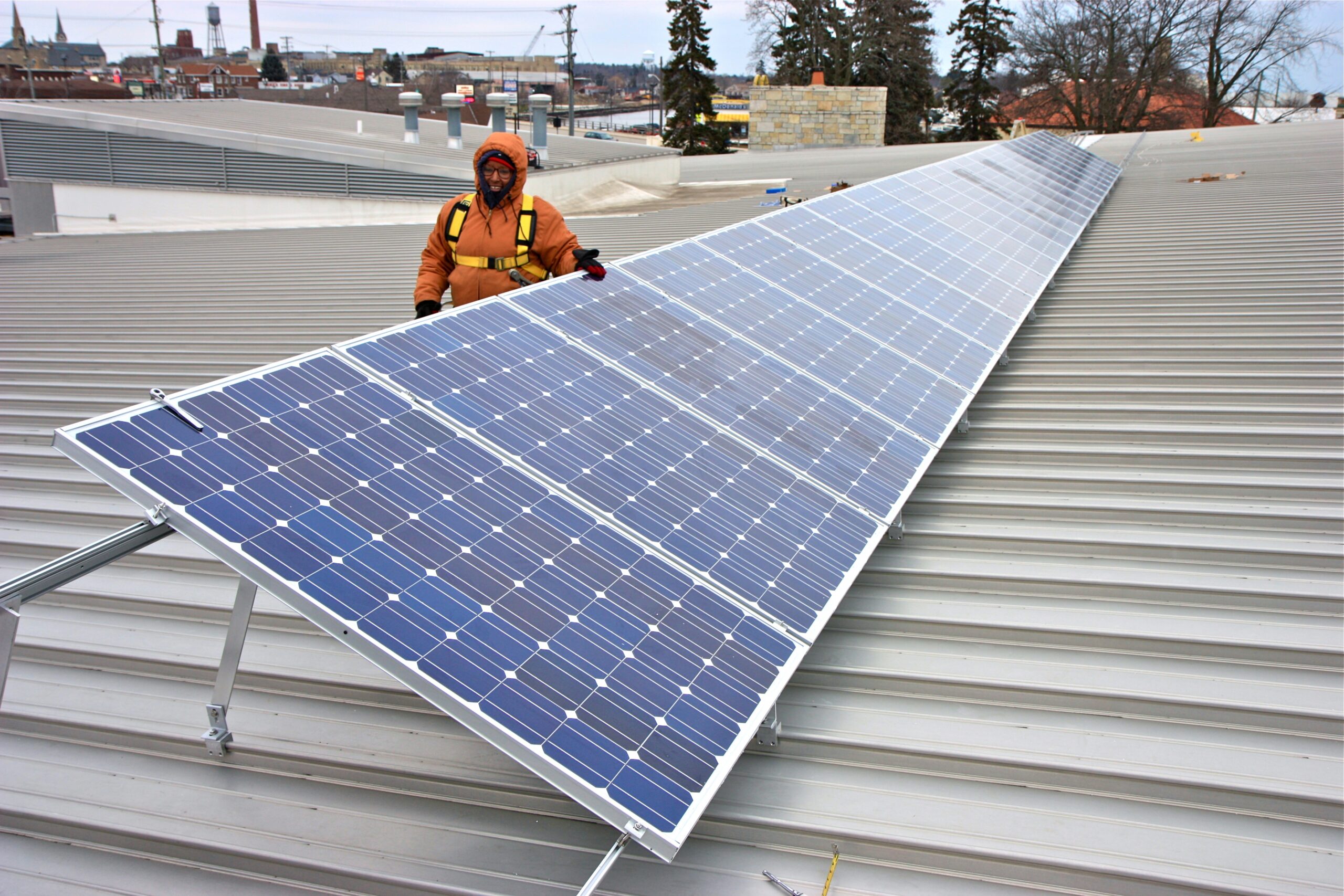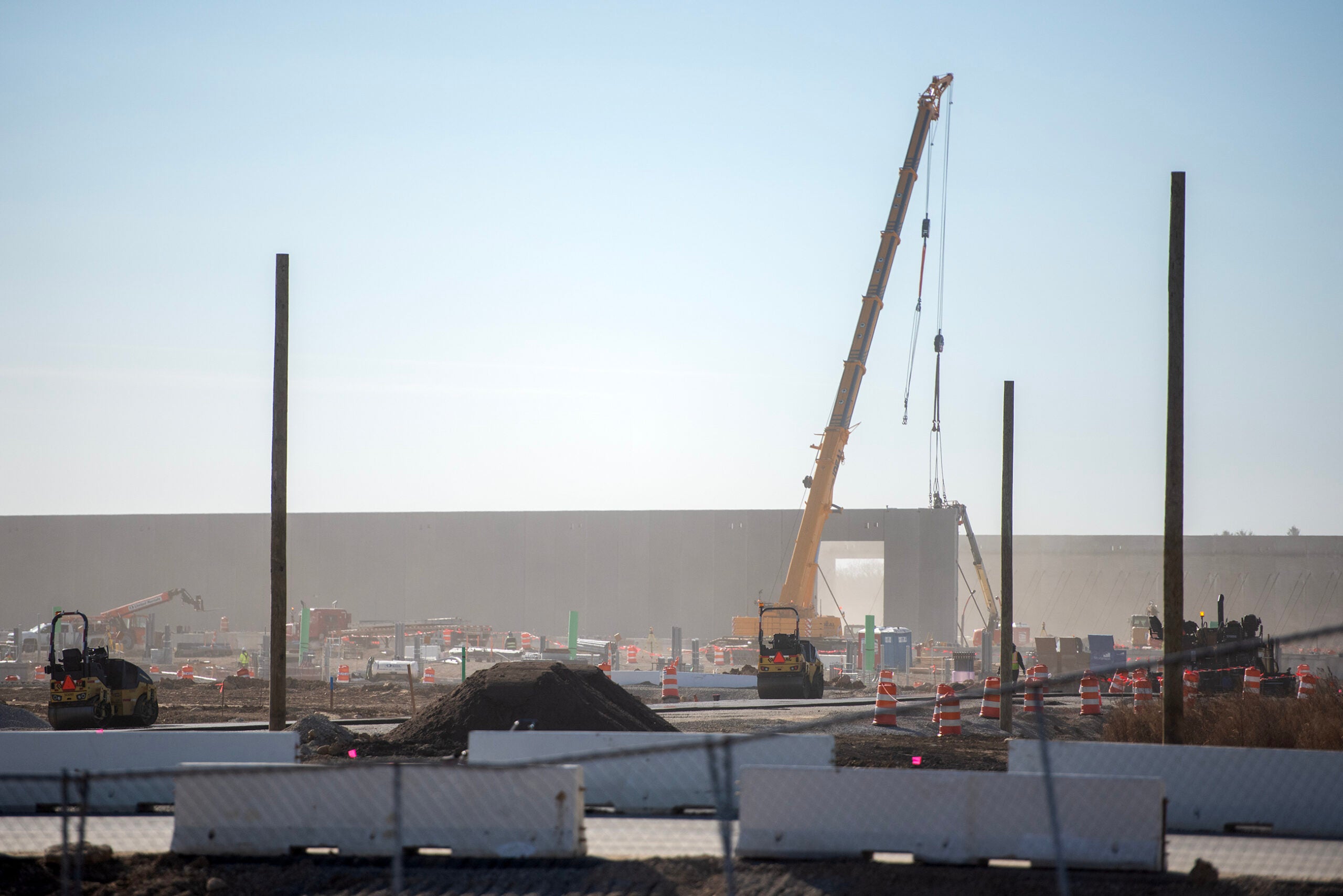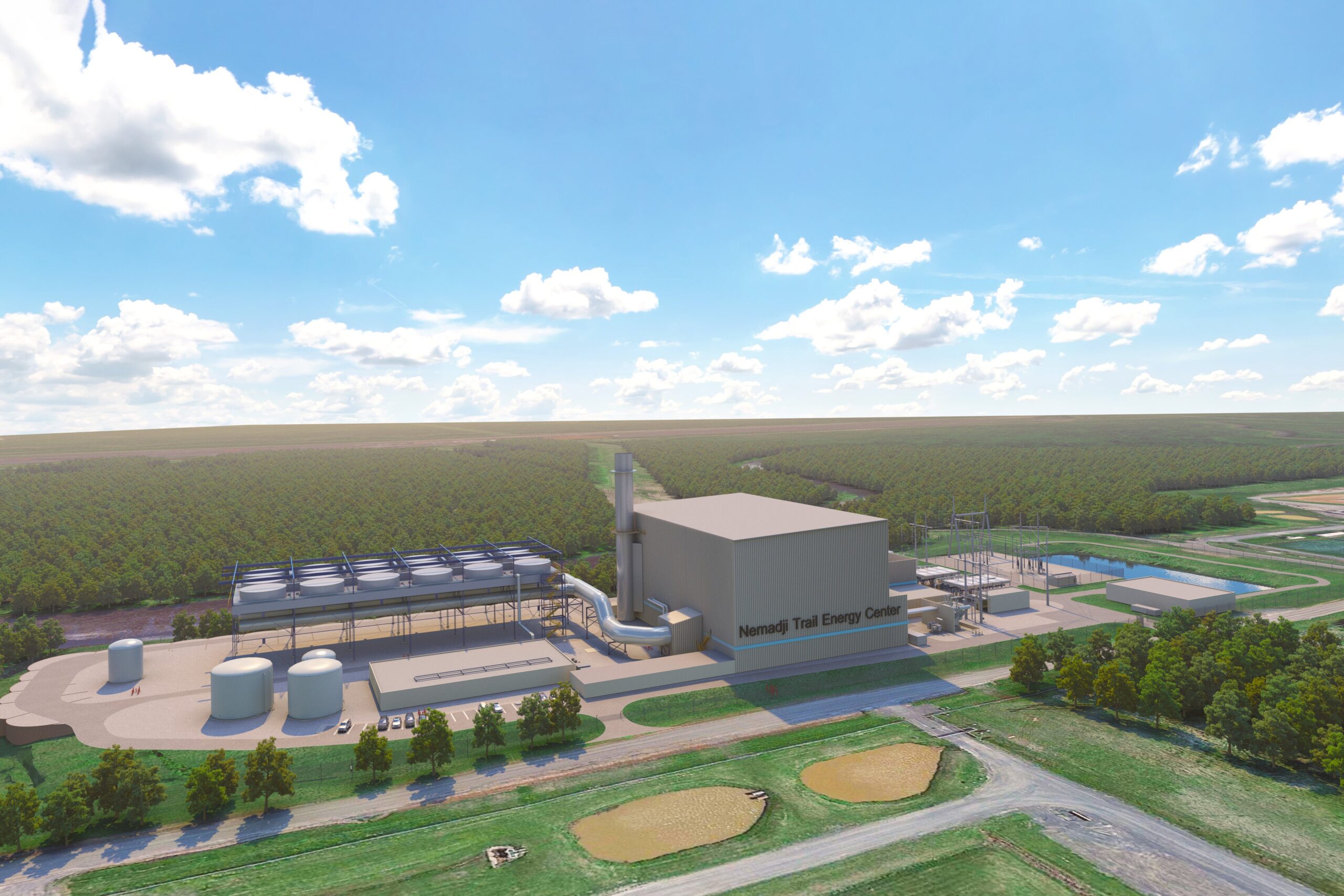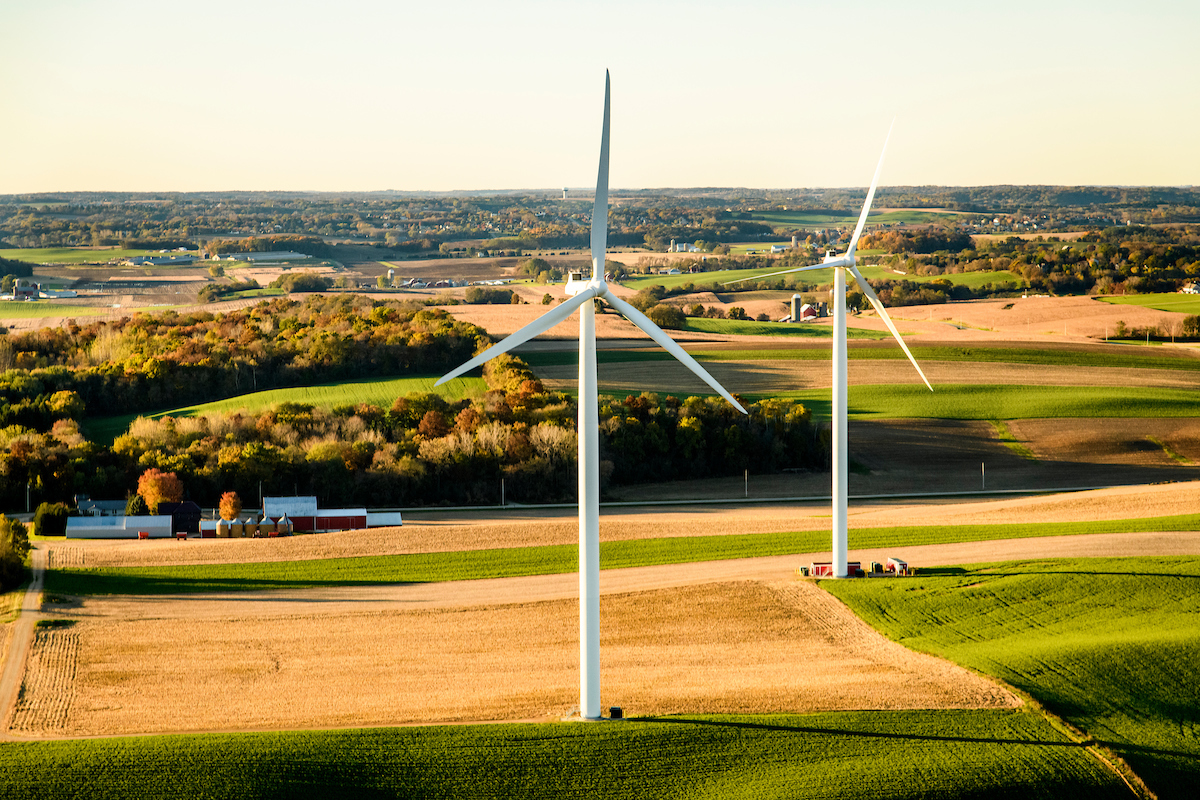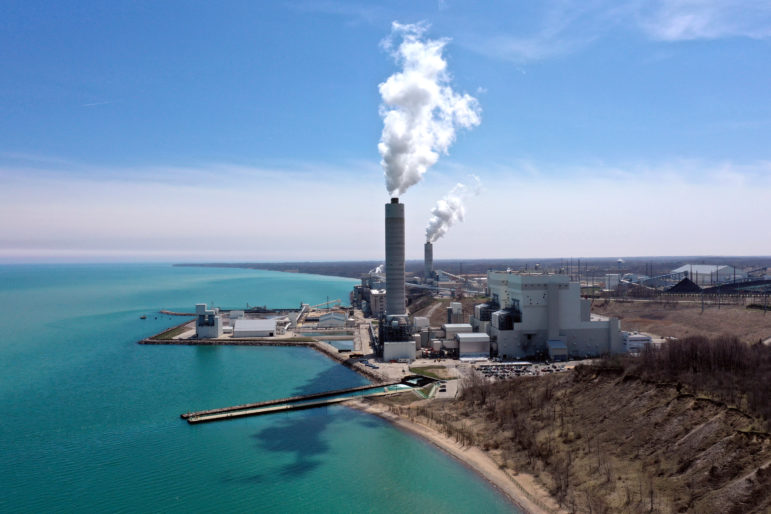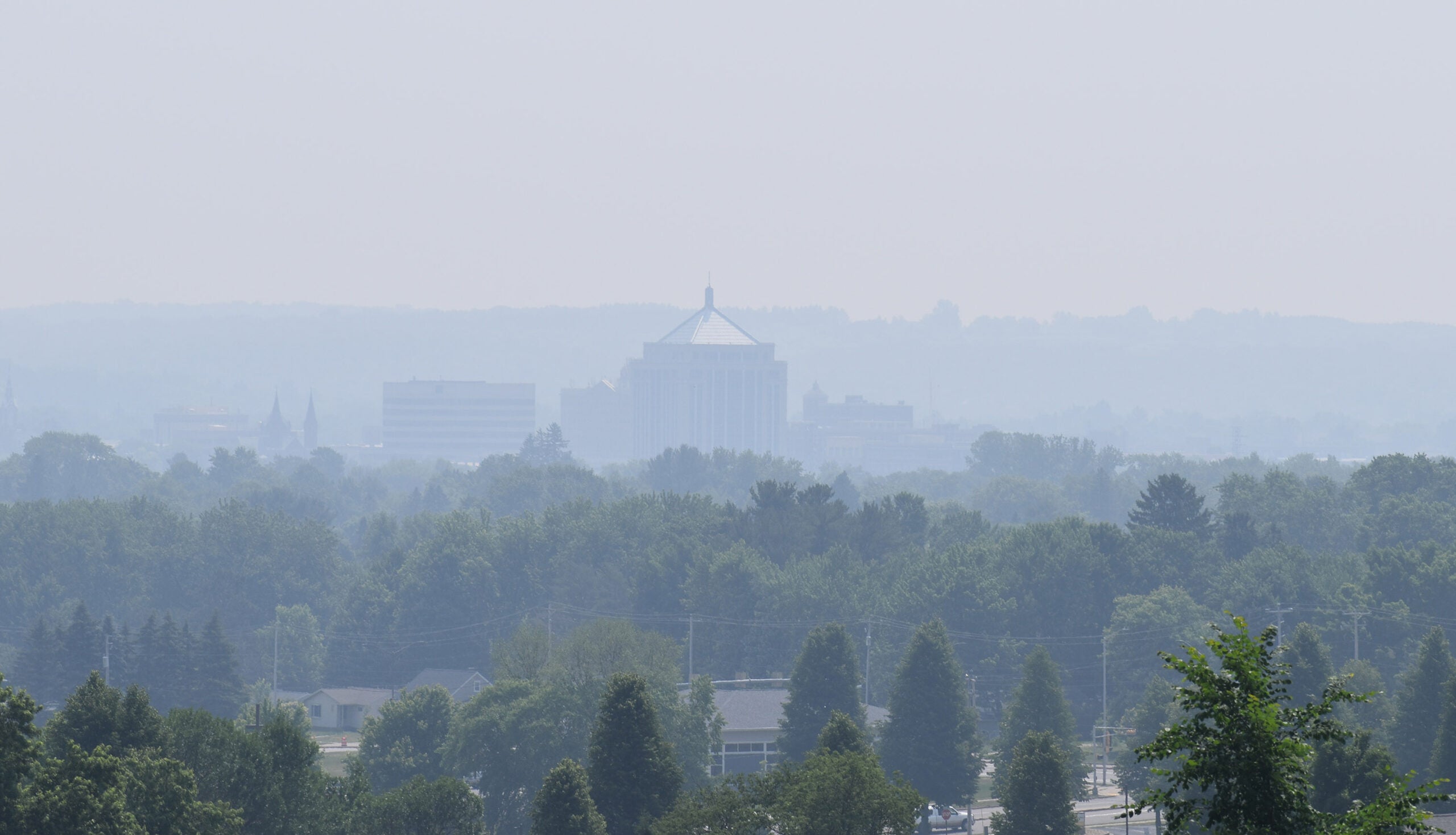A new statewide coalition is pushing for Wisconsin to be carbon-free by 2050.
The group, the Clean Economy Coalition of Wisconsin, includes 12 environmentally focused organizations who are joining to push for local and statewide policies that prioritize improving access to clean energy and power sources.
It’s yet another way statewide leaders are looking to transition Wisconsin to a clean energy economy in the coming years. Gov. Tony Evers attended the announcement of the coalition Wednesday in Milwaukee. His proposed budget calls for spending millions on clean energy initiatives.
News with a little more humanity
WPR’s “Wisconsin Today” newsletter keeps you connected to the state you love without feeling overwhelmed. No paywall. No agenda. No corporate filter.
“We don’t have to choose between mitigating climate change and protecting our environment and good paying jobs and economic development — we can, and we are, doing both,” Evers said. “A clean energy economy is a win for everybody, both sides of the aisle and around the state.”
Evers and the organizations in the coalition argue the state should reduce reliance on out-of-state energy sources, while creating new jobs and apprenticeships to accomplish the work. The coalition identified six main policy goals, which include increasing the use of clean and renewable energy sources for homes and buildings and encouraging the transition to electric vehicles across the state.
Mark Redsten is the executive director of Clean Wisconsin, a nonprofit focused on protecting the state’s natural resources. He said the organizations in the coalition bring “extraordinary expertise” in pursing a clean economy for the state.
“Our collective work is about more than prioritizing climate and clean energy policies,” Redsten said. “It’s about creating a movement and accelerating the transition to a clean economy and helping communities from Marinette to Madison, Minocqua to Milwaukee realize these goals.”
The group is pushing for a 50 percent reduction of energy use in buildings by 2030, phasing out the use of natural gas in existing homes and businesses and pushing for 50 percent of new car sales being electric vehicles by 2030. They are ambitious goals: Fewer than 1 percent of the more than 6.1 million vehicles now on the road in Wisconsin are EVs. And about 65 percent of homes in the state are heated with natural gas.
The coalition will also place a focus on racial and economic justice at the center of its work. Montre Moore, the steering committee chairman for the Environmental Justice and Infrastructure Initiative, spoke about the importance of including communities of color in their plans.
“From day one, members of the coalition have aligned on the fact that a just transition to a clean economy requires the input of all, including those that have been historically excluded from key opportunities,” Moore said.
Numerous studies have found that the detrimental impacts of climate change disproportionally impact communities of color and low-income communities.
“These same excluded communities have borne the brunt of the consequences of a lack of clean energy policy,” Moore said in a news release.
Walnut Way, a Milwaukee nonprofit with a stated goal to “reclaim and redevelop the economic health and vitality of the community,” is also a member of the coalition. That group has reclaimed vacant lots in the city, turning them into urban gardens. They’ve also done work to discuss how climate change is impacting communities of color.
Other organizations in the coalition include the Wisconsin chapter of the Sierra Club, RENEW Wisconsin, Wisconsin Conservation Voters, Wisconsin Land and Water Conservation Association and Wisconsin Health Professionals for Climate Action.
“We believe we have a once-in-a-generation opportunity to accelerate our clean economy goals,” said Matt Krueger, executive director of Wisconsin Land and Water Conservation Association. “Much of our state’s identity is tied to our rural and agricultural landscapes, which are especially challenged by climate change. We are advocating for natural climate solutions for both rural and urban communities to help spur our state’s economy.”
Milwaukee officials have taken action on environmental issues in recent years, as the city has a goal of net-zero emissions by 2050. Milwaukee is also now requiring the majority of purchases of new city-owned vehicles to have low or zero-emissions. But Milwaukee Mayor Cavalier Johnson said climate change isn’t an issue Milwaukee is facing alone.
“Climate change is impacting Milwaukee, but I can tell you this — it’s not just an urban problem, it’s not simply a Milwaukee only problem, it’s a problem that impacts the state, it’s a problem that impacts the nation, it’s a problem that impacts the world,” Johnson said during the coalition’s announcement. “It’s time that we take it seriously.”
Wisconsin Public Radio, © Copyright 2026, Board of Regents of the University of Wisconsin System and Wisconsin Educational Communications Board.

